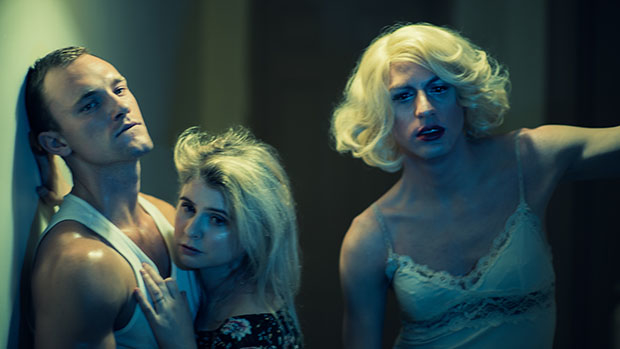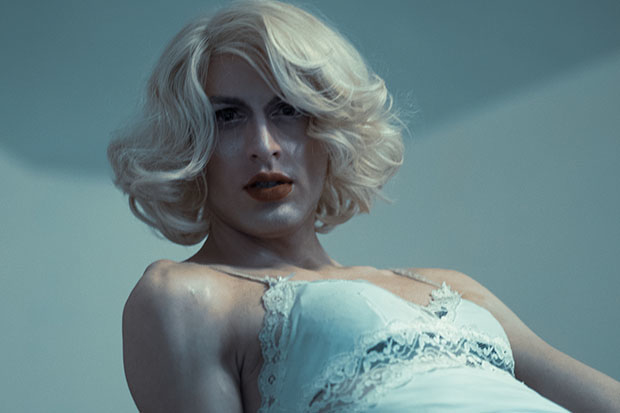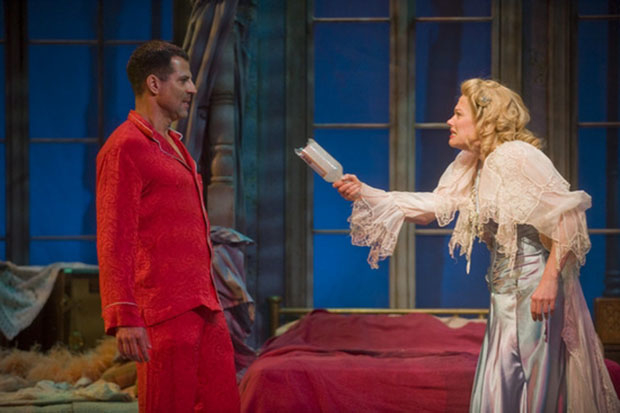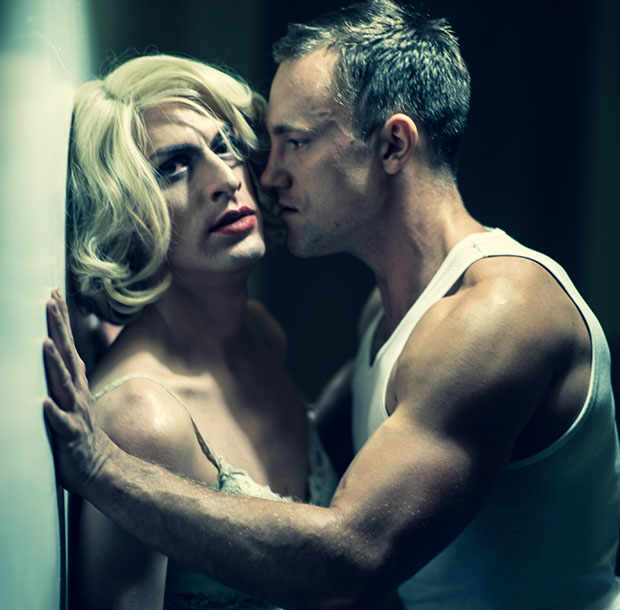What Happens When a Genderqueer Actor Plays Blanche in A Streetcar Named Desire?

(© Rosie Soko)
Blanche DuBois looms large in the queer imagination. As a gay man, I have always felt a certain kinship with the faded plantation aristocrat who takes an extended trip to gritty New Orleans to visit to her sister, Stella, and brutish brother-in-law, Stanley, in Tennessee Williams's A Streetcar Named Desire. I'm fascinated by Blanche's antique gentility, sympathetic to her survival-motivated dishonesty, and tickled by her perfumed defiance of the musky virility wafting around her.
Naturally, Blanche has provided inspiration for generations of drag performers, including Mark Sam Rosenthal in Blanche Survives Katrina in a FEMA Trailer Named Desire. That 2008 Fringe hit received a cease-and-desist letter from the University of the South, the rights-holder of Williams's plays, which (as per Williams's own wishes) has taken a dim view of men taking on the fabled role.
Nevertheless, a male performer actually did play Blanche in an officially sanctioned Japanese-language production: Eisuke Sasai, a modern champion of the Kabuki practice of onnagata (men playing women), portrayed her in 2001 and 2008. But such productions are exceedingly rare, and to my knowledge have never been approved for an American stage.
But what happens when a performer slated to play Blanche identifies as neither male nor female, but "genderqueer"? In the case of a forthcoming Brooklyn revival, the rights are granted.

(© Rosie Soko)
I spoke with genderqueer performer Russell Peck, who is starring as Blanche in this intimate new staging at Mister Rogers in Crown Heights — a coproduction of the Coven and Precariat Productions, in association with Wolfpack Theatrics. Director Kevin Hourigan also joined the conversation to explain his vision for this first-of-its-kind production of a classic drama that still sizzles. But first, I had to get a basic question out of the way:
What does genderqueer mean?
Russell Peck: It's not subscribing to cultural norms about how you present yourself, how you look, and how you identify. It's embracing your own individuality and not caring what other people think. That's something I'm still working on, especially in this industry, which has an impulse to box you up and find out where you fit.
Has it taken you some time to accept this identity?
Russell: Totally. I came out as gay at the end of middle school. I always felt different and was treated differently. I knew I wasn't a cisgender gay man, but I didn't have the words at the time to describe what I was.

(© Kevin Sprague)
When did you first know you wanted to play Blanche?
Russell: The summer between sophomore and junior year of college, I was an intern at Barrington Stage Company. Their last production was Streetcar, and Marin Mazzie was playing Blanche. I had loved her for years, and I really loved her performance. That summer, I became obsessed with Williams and I read his entire collected works. Watching the play every night, I started to think: I'm going to play Blanche someday.
This is being described as an immersive production. Why is that?
Kevin Hourigan: We want the audience to feel like they're in the room. It's not the kind of experience where you're standing up and walking around. But I do think that so much of what is dangerous in this play is the electricity between the bodies of Blanche, Stella, and Stanley. My goal is to put the audience up close and personal with that and make that house feel as claustrophobic as possible.
Is your production also suggesting that Blanche is genderqueer?
Russell: My body is in the role, but Blanche identifies as a woman, and presents as a woman. None of the pronouns have been changed. But there's a queer body in the role and that definitely informs a lot of the interactions. For instance: Stanley has this obsession with uncovering who she really is — her history and past. When my body is in the role, it changes the way things are played. The scene where Mitch comes and he finds out about her past and he rips the lampshade and holds the light to her face — that all takes on a different meaning with a queer body.

(© Rosie Soko)
Throughout the play, Stanley scoffs at Blanche's aristocratic airs. Do you think there are a lot of guys like Stanley in 2019 that see an identity like "genderqueer" as an affectation of the rich?
Kevin: Sure. I know those people. I grew up around those people. That's another symptom of our divided nation. We don't even have a consensus on language and how we talk about identity anymore.
Russell: I've encountered a lot of misunderstanding of the concept of genderqueerness, and talking about it as this classist affectation, because there's an intellectual discourse around it that not everyone has interest in or access to.
Kevin: It gets at the heart of the Blanche-Stanley conflict. Blanche is a person who believes that we can conjure the world that we want by imagining it. She believes in beauty and art and poetry.
Russell: And Stanley thinks that's total bullsh*t.
Kevin: Exactly! He's a blue-collar guy who has worked his way into a level of comfort where he can play poker with the guys in his free time.

(© Rosie Soko)
Is their relationship a microcosm of American society?
Russell: Yeah. We're all dealing with our own trauma, and we cannot move beyond that to listen. A lot of the tragedy of the play is about these two people who are so different, but who see parts of themselves in each other — and that terrifies them. If we could all hear each other and start actually having conversations, I think we could start to move forward. There's so much more we have in common than we'd care to admit.
What kind of conversation do you want your audiences to be having as they leave the theater?
Russell: The conversation about gender is so important — not just for trans people or queer people, but everybody. The gender binary is so toxic, and so many power structures are held in place by that binary. I hear all the time from my straight cisgender male friends about the ways they feel inadequate, or how they feel like they have to live up to this masculine ideal that is totally not who they are. So this is a really important conversation for everyone.










